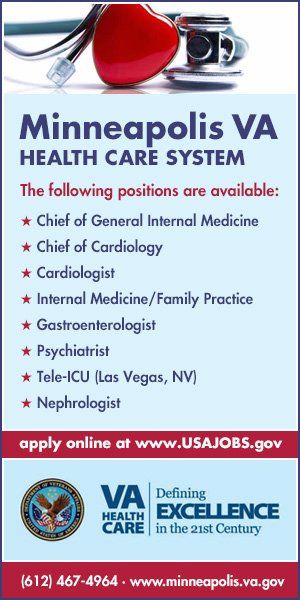rtificial Intelligence (AI) in gastroenterology has the potential to democratize access to knowledge that has historically been held in the hands of specialists. For example, the expert scoring of endoscopic findings in inflammatory bowel disease can now be done automatically, and the results placed in the hands of primary care physicians, nurses, and even patients. Some of the most recent developments in AI for gastroenterology have been in the area of polyp detection, but that is just the tip of the iceberg. Exciting new developments also include automated documentation, automated trial recruitment, and many other advances. AI in gastroenterology is still a nascent field, dependent very much on physician input to ensure development targets clinical needs. It is essential that this input includes primary care physicians, and as we continue to partner with providers in developing these powerful tools we can streamline care while producing better outcomes.
cover story two
The Future of Gastroenterology
Incorporating Artificial Intelligence
By Jonathan Ng, MBBS/MD and Sloane Philips, MBA and Sloane Allebes Phillips, MBA
Defining parameters
AI technology augments physician expertise and optimizes the ability to deliver patient care. For example, it can serve as a second set of eyes for polyp detection and identification, enhancing the quality of patient care through improving detection of adenomatous polyps. Or, in inflammatory bowel disease (IBD), it can aid in diagnosis and determine severity of disease.
In some applications, AI also serves as an extra hand for EHR documentation with tools that automatically learn and adapt based on the data entered, improving clinical efficiency and accelerating workflows. In doing so, AI can reduce physician burnout, redundant data entry, and the likelihood of missed information through human error.
Physicians and AI developers must work together.
In clinical trials today, we are using AI to expedite the qualification of patients by automatically determining severity of disease. This qualification incorporates both endoscopic interpretation and analysis of EHR data to match patients precisely to trials. This enhances both the ability of patients to access drugs which would otherwise be unknown to them, and also accelerates new therapies into the market for the general population.
Collaborating with Primary Care
Physicians and AI developers must work together to advance GI care–it won’t happen without active participation from both parties. Leading AI developers like Iterative Scopes need clinicians to offer their expertise and guidance to ensure new technology meets clinical needs. Meanwhile physicians can lean on AI developers to design solutions to help them not only keep pace but advance the standard of medical practice. Clinician guidance is critical in development of these tools, and in recognition of this Iterative Scopes will continue to ensure that the clinical perspective is a core input to all of our development processes.
We think AI should be part of all care plans, starting from the primary care physician’s office all the way to the gastroenterologist. In order to achieve maximum impact, AI development roadmaps need to be built on a foundational understanding of the needs from the very beginning of the patient’s continuum of care. We believe that with the right tools we will be able to help all providers practice at the top of their license.
Because we incorporated provider feedback in our clinical development cycles, Iterative Scopes focused early product development on two main pain points, both related to interpreting endoscopic tissue. The first is reducing variability in identifying polyps. Through conversations with providers specific design decisions were made both around algorithm development and the software user interface. These include, for example, emphasizing the importance of identifying sessile serrated lesions which can be particularly difficult to recognize. We are currently tackling the problem of consistent scoring of severity of disease for IBD patients and have demonstrated successful capabilities in distinguishing mild, moderate and severe disease. These products can reduce the disparity in outcomes that we see in medicine today thereby reducing both patient and physician anxiety.
Machine learning
Machine learning is an application of artificial intelligence that enables software to learn and adapt using algorithms and statistical models, rather than by following explicit instructions. Machine learning applications analyze data patterns, draw inferences and adjust accordingly. One example of a machine learning application that is being used in GI today is Provation Apex Procedure Documentation, which uses machine learning to personalize and streamline the documentation process for physicians.
The future of AI in gastroenterology is very exciting. Advances are coming almost faster than the industry is able to keep pace with. As we move forward here are some of the areas to follow:
Integrated AI-powered clinical decision support and documentation software
Today, AI-augmented polyp detection is typically positioned as an add-on service, either provided by an endoscope vendor or as an attachment that integrates to the endoscopic processor. We propose to take this integration one step further and to not only introduce AI powered polyp detection software that interfaces with the endoscope but also integrates into documentation platforms. An AI software that integrates into documentation platforms could not only detect polyps in real-time, but could also reduce the burden of documentation by capturing information about polyp type, size and location as discrete data points for physician review and sign-off. Other easily captured data points could include cecal intubation, withdrawal time, total procedure time, types of tools used to resect polyps and other findings as they relate to quality of procedure, like automatic assessment of bowel prep quality. This is just one example of the kind of function computer-vision and AI can provide to improve and streamline documentation for physicians. This also serves as an example of the kind of product development that can be delivered when incorporating provider feedback and priorities.
Providers should start asking patients if they would like AI to be a part of their care plan.
More dynamic machine learning
As mentioned earlier, the current state of machine learning in GI documentation allows a software to learn and suggest common selections. In the near future, machine learning will increase in capacity and be able to recommend full templates based on what the physician has documented in the past. AI will not only provide documentation suggestions, but also clinical decision support (i.e. identifying contradictory indications, suggested medications, and alerts), allowing nurses and physicians to continue to be extremely thorough while also increasing efficiency in their patient charting and procedure documentation.
A look at the future
AI in GI is already delivering better patient outcomes. AI can provide enhanced data but will never replace the art of medicine, or the ability gained through generations of experience and scientific discoveries to manage the diagnosis, prognosis, prevention, and treatment of injuries and diseases.
As more specialists and primary care providers become involved in collaborating with AI experts, more impactful AI technology will be designed to achieve the best patient outcomes. AI is already accelerating and improving care, as well as forging valuable new industry partnerships, and we look forward to what the coming years will bring.
Jonathan Ng, NBBA, MPA, MBA, is the CEO at Iterative Scopes, a software-only company, spun out of MIT, working to deliver AI toolkits to the practice of gastroenterology.
Sloane Allebes Phillips, MBA,
is the VP of Clinical Operations at Iterative Scopes.
MORE STORIES IN THIS ISSUE
















